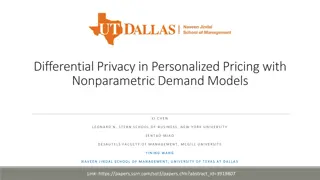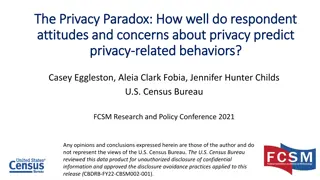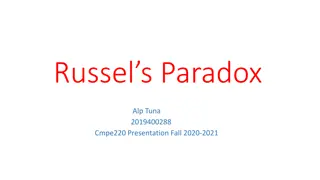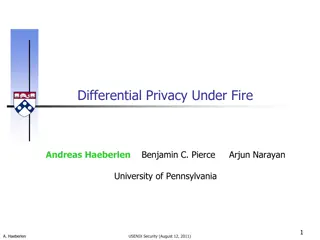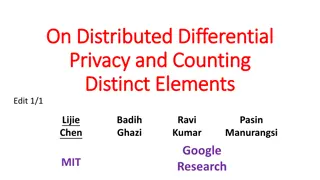
The Privacy Paradox: Understanding Online Privacy Trade-Offs
Dive into the concept of the privacy paradox, where individuals claim to prioritize online privacy but often sacrifice it for convenience. Explore the notion that when receiving online services for free, you're the product, not the customer. Reflect on the pervasive nature of immediate gratification bias and how media manipulates you into surrendering your privacy. Discover the intricate relationship between institutions, media usage, and personal data exposure in the digital age.
Download Presentation

Please find below an Image/Link to download the presentation.
The content on the website is provided AS IS for your information and personal use only. It may not be sold, licensed, or shared on other websites without obtaining consent from the author. If you encounter any issues during the download, it is possible that the publisher has removed the file from their server.
You are allowed to download the files provided on this website for personal or commercial use, subject to the condition that they are used lawfully. All files are the property of their respective owners.
The content on the website is provided AS IS for your information and personal use only. It may not be sold, licensed, or shared on other websites without obtaining consent from the author.
E N D
Presentation Transcript
The Privacy Paradox
The way institutions use the media
The privacy paradox The privacy paradox is the idea that people may claim to care about their privacy online, but are quick to trade this away for convenience.
If you are getting something online for free, you are not the customer you are the product
How many social media apps, or websites have at least your email address?
Media is designed for you to lose this battle. You are the product.


